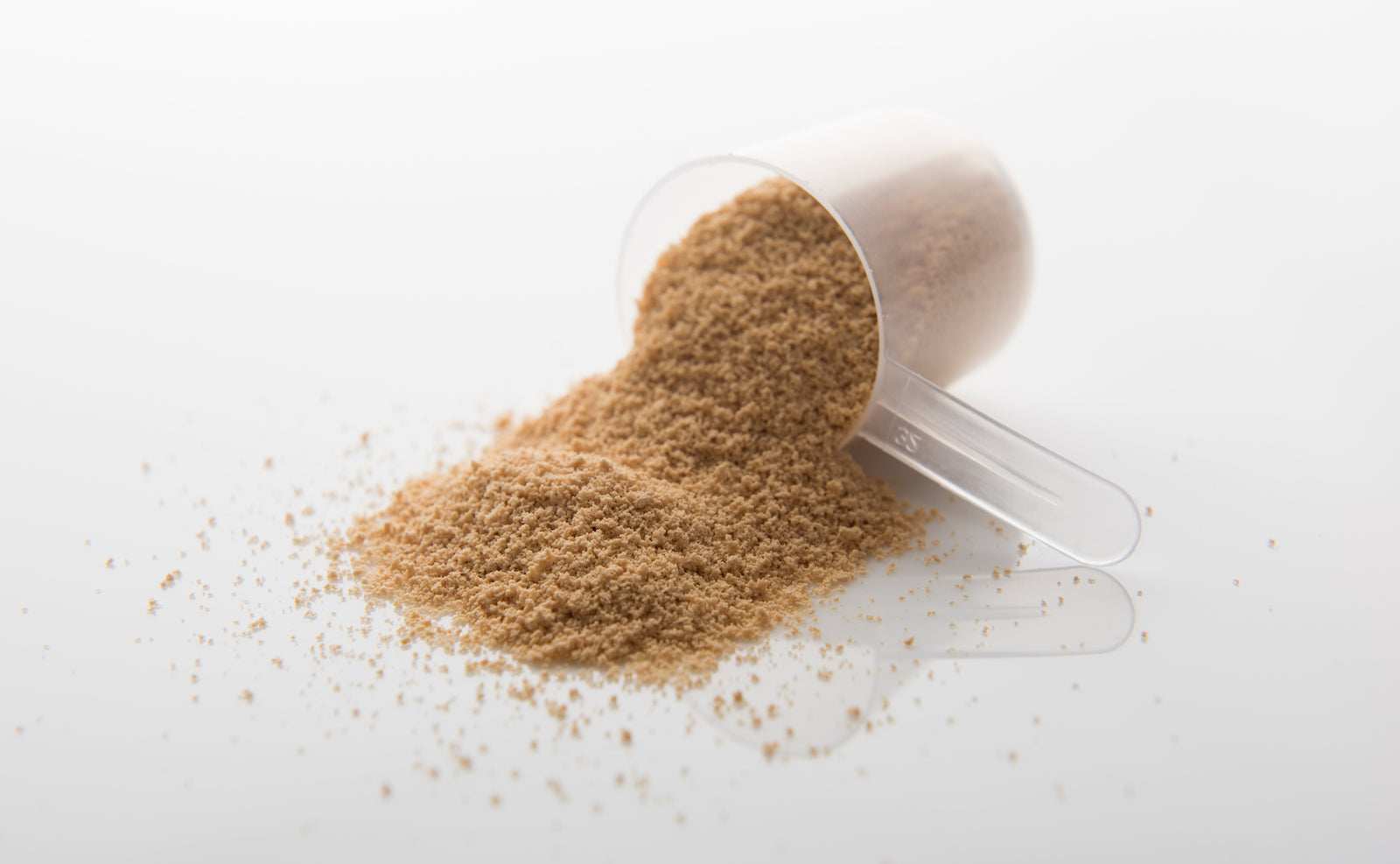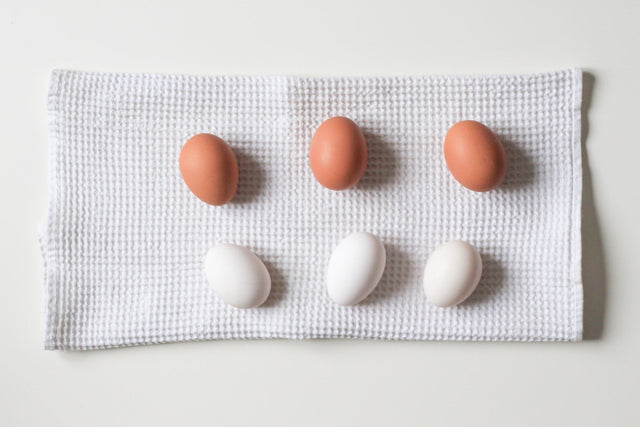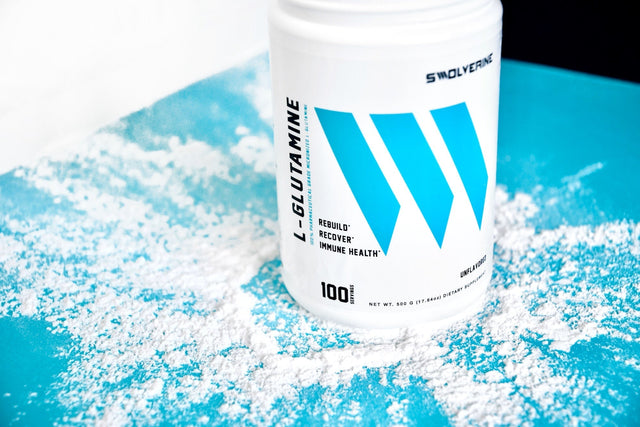Protein is by far the most popular macronutrient, and for good reason. Protein provides the vital amino acids and building blocks you need to build more muscle mass, repair muscle tissue, improve strength, and optimize overall body composition. The challenge, however, is knowing which protein source is the best. We live in a world of choices, and often times the sports nutrition aisle can be a bit overwhelming. Pea protein and hemp protein are both amazing sources of plant-based protein, yet, knowing the differences will help you decide which one is a better fit for your goals.
Comparing The Labels
To start, when you’re looking to buy a nutritional supplement or protein powder, it’s crucial to examine and compare the nutrition labels. While you’re searching for which protein has the most protein content, make sure the protein you select does not contain any proprietary blends or mixes. Products that use blends, do not disclose how much of each ingredient the product contains. So how do you know what you’re supplementing with… you don’t. Make sure the label provides complete transparency, into what ingredients and how much they use.
It’s important to also note how many servings your protein has. Several plant-based options will have lower protein content and fewer servings per container. Make sure you’re getting a fair amount of servings and more than 18g of protein per serving.
What Is Pea Protein?
As the name so aptly suggests, pea protein is derived from peas. Typically, pea protein is made with split peas, or yellow peas, and contains more protein content than other plant protein sources at 90% protein content. The peas are harvested, dried, re-hydrated and the protein is then extracted.
Is Pea Protein A Complete Protein?
Of the 20 amino acids in the human body, nine are classified as essential. Essential, meaning that you must obtain them from your food or through supplements. The food sources that contain all nine essential amino acids are protein sources, typically derived from meat, poultry, or dairy sources. Some plant protein sources, do not contain all nine essential amino acids, thus making them incomplete sources of protein.

Pea protein has an impressive essential amino acid profile, which is paramount to support your athletic performance and goals. Yet, there is an ongoing debate, whether or not Pea Protein is a complete source of protein. Although pea protein contains all nine essential amino acids, technically making it a complete protein, it’s low in the amino acid methionine. As compared to other plant-based protein sources, pea protein is the closest to animal-based protein sources such as whey with a very similar amino acid content.
What Is Hemp Protein?
Hemp protein is derived from the hulled shells of the hemp plant. The seeds are cold-pressed, milled and sifted to extract the oil, leaving a nutritious plant-based protein powder. One of the greatest benefits and differences between pea protein vs hemp protein is the fiber content. Fiber has an imperative role in digestive health and reducing the risk of chronic disease. 30g of hemp protein contains 8 grams of fiber or 20-25% of the recommended daily intake.
Is Hemp Protein A Complete Protein?
Hemp is a great protein source, due to its healthy fat and fiber content. Hemp protein contains all nine essential amino acids, making it a complete source of protein. However, hemp protein is relatively low in critical amino acids, when compared to pea protein.

Pea Protein Vs Hemp Protein
Macronutrient Differences
In regard to protein content, pea protein outweighs hemp protein by a long shot. Per 30g serving, pea protein has 24g of protein compared to only 15g, with pea at 90% protein content compared to 75% content in hemp. Although pea protein only has 1g of carbs compared 9 in hemp, total net carbs for hemp protein is really only 1g of carbohydrates.
| PEA VS HEMP PROTEIN (30G) | ||
| PEA PROTEIN | HEMP PROTEIN | |
| CALORIES | 120 | 90 |
| CARBOHYDRATES | 1 | 9 |
| FAT | 2 | 3 |
| PROTEIN | 24 | 15 |
| FIBER | 0 | 8 |
Micronutrient Content
One huge difference between animal and plant protein, are the micronutrients. Pea protein is rich in iron, manganese, folate, copper, phosphorus, vitamins B6, B2, niacin, molybdenum, fiber, and vitamins A, C, and K.
Hemp protein is rich in minerals and antioxidants phosphorus, magnesium, calcium, iron, manganese, zinc, and copper.
What makes hemp a bit more unique than pea protein, is that Hemp protein contains an essential 3:1 balance of Omega-6 to Omega-3 fatty acids, contributing to improved heart joint, and brain health. Hemp seeds also contain what’s called lignanamides – compounds with strong antioxidant properties, helping protect from chronic disease and oxidative stress.
Amino Acid Content
When it comes to performance and ergogenic benefit, pea protein also comes out on top when compared to hemp protein. Despite its complete protein classification, hemp protein is critically low in several amino acids, such as lysine, leucine, valine, alanine, proline, and tyrosine.
Pea protein has a very similar amino acid mix, as compared to whey protein. Due to its high amount of essential amino acids, specifically arginine, leucine, isoleucine, valine, and alanine (leucine, isoleucine, and valine are the branched-chain amino acids BCAAs, and are known to be most responsible for stimulating muscle protein synthesis), pea protein is an amazing plant-based protein alternative for athletes. Arginine specifically helps facilitate the release of nitric oxide, which increases oxygen and blood flow, translating to increased muscle growth, and better recovery. Pea Protein has nearly three times the amount of arginine than whey protein.
Protein Digestibility
Protein digestibility-corrected amino acid score (PDCAAS) is a method of evaluating the quality of a protein. PDCAAs are based on both the amino acid requirements of humans and their ability to digest it. Most plant proteins have low bioavailability (meaning the body has a hard time absorbing the nutrients). Pea protein isolate, however, ranks at a 0.928, on a scale of 1 being the highest in digestibility. The PDCAA of pea protein is therefore very similar to that of whey, casein, and egg. Hemp protein however, ranked with a PDCAA score of only 0.5. This means that pea protein provides a better source of essential amino acids, than hemp protein.
Digestibility is an important factor when it comes to performance benefits and outcomes. Delivering the essential amino acids you need post-workout, is vital to rebuild and repair lean muscle mass, to help more muscle and recover faster.
Taste
Now, let’s talk about the real deciding factor – taste. Pea protein has a neutral flavor, mixes very smoothly like whey or whey isolate, and is not chalky in nature as compared to its plant protein counterparts. Hemp on the other hand, is more nutty or earthy in taste, and chalkier in nature, giving it a grittier texture.
Pea Protein Vs Hemp Protein – In Summary
- Pea protein contains a higher amount of the essential and branched chain amino acids you need for optimal performance
- Pea protein has more protein per serving than hemp protein
- Pea protein is a superior protein source than hemp to due its bioavailability, digestion score which is similar to casein or egg protein.
- Pea protein has a neutral flavor, unlike hemp protein which is nutty/earthy in flavor with a chalky or grittier texture
- Unlike pea protein, Hemp protein contains healthy essential fatty acids omega-6 and omega-3, and a high fiber content
Pea Protein Vs Hemp Protein: Takeaway
Pea protein proves to be a better source of plant-based protein than hemp, due it’s protein quality, content, taste, and digestibility. Despite the differences however, hemp protein offers some great nutritional benefits with healthy fat and fiber content. That’s why at Swolverine, we created PLANTPRO5, which contains pea protein isolate along with hemp protein, so you can get the best of both worlds to help fuel your health and performance.
Get the best of both worlds with pea protein isolate and hemp protein in Swolverine's PLANTPRO5
Swolverine's PLANTPRO5® is the perfect mix of high-quality plant-based protein, to provide the nutrients you need to power your performance. Made with Pea Isolate, Hemp, Pumpkin Seed, Sacha Inchi, and Quinoa Protein, PLANTPRO5® provides 21g of the protein you need to increase strength, build more lean muscle mass, and optimize performance. With a delicious Chocolate Cake flavor, PLANTPRO5® Is the perfect addition to your plant-based diet.
SWOLVERINE IS AN ENDURANCE ATHLETE AND ACTIVE LIFESTYLE BRAND. MADE FOR THE ELITE ATHLETE, AND THE STRONG-WILLED OUR PRODUCTS WERE DESIGNED TO FUEL YOUR ATHLETIC PERFORMANCE. WE PERFORM WHEN YOU PERFORM.
We believe that everyone can optimize not only their athletic performance but their human potential. The way we believe we can optimize performance is through transparency, clinically effective doses, and clinically proven ingredients with evidence-based outcomes. We provide the nutrients you need to power your active lifestyle.














